Annual WOS day full of activities on climate adaptation and water
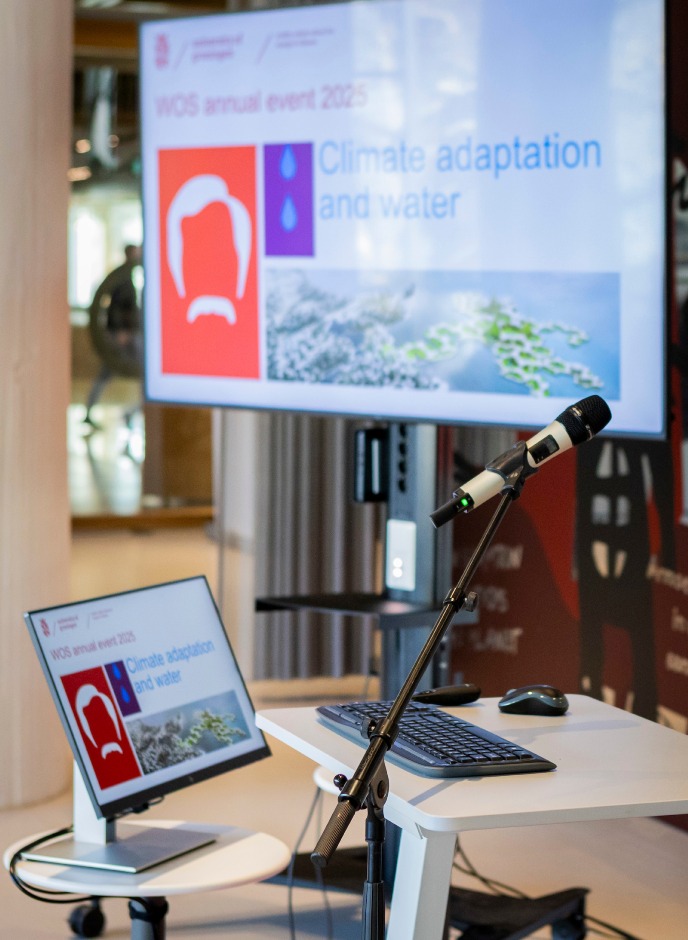
The annual event of the Wubbo Ockels School for Energy and Climate, which took place on 21 March at the House of Connections on the Grote Markt, was very successful. The many participants enjoyed a diverse programme of lectures and interactive workshops focusing on climate adaptation and water. The central question of the day: how can we emphasise the urgency and opportunities of climate adaptation regionally and (inter)nationally, and how can (new) forms of communication help us do this? The WOS Annual Report 2024 was also presented in the form of cards with qr codes.
After a brief welcome word by Lorenzo Squintani, scientific director of the Wubbo Ockels School, event participants were taken to the bottom of the ocean by professor Caroline Katsman. At least in her keynote address, she shared the latest insights on complex ocean currents that strongly influence our climate. In the Netherlands, for example, we have a mild climate thanks to the AMOC, a current in the Atlantic Ocean.
Ocean current
Katsman is a physical oceanographer at TU Delft and researches this ocean current. She explained how in the Atlantic Ocean warm, salty water flows northwards near the equator. There, the water cools sharply and sinks to the bottom, after which it flows south again. ‘The ocean current is like a conveyor belt for heat.’
Global warming affects this process. Melting ice adds extra fresh water to the ocean, making the water lighter and less likely to sink. This can cause the circulation to slow down or even stop, Katsman told us. Remarkably, this makes it colder in north-western Europe, as less heat is brought in from the tropics. Sea levels will also rise and it will get warmer elsewhere on Earth.
According to climate models, the AMOC could weaken by 35 to 40 per cent by 2100. Katsman pointed to the so-called Argo floats, a kind of buoys that help collect data on the AMOC. Comprehensive observations of the currents, however, are only from recent years, she told us. What exactly the effect will be is still uncertain. Limiting the flow change can only be done by drastically reducing CO2 emissions, the professor finally stressed.
Impact
After Katsman's engaging presentation, Ronald Holzhacker (professor of Multilevel Governance and Regional Structure at the University of Groningen) explained how scientific research is translated into societal impact. He showed four videos on climate adaptation and sustainable development in cities. Holzhacker stressed the importance of integrating ‘public outreach’ into research at an early stage.
Breakout sessions
After the break, the audience split up to take part in several parallel sessions. A number took to a virtual polar expedition with vr glasses, led by Artic Explorer's Marije Tempel, including an encounter with a polar bear. Arctic Explorer's aim is to reach a wide audience by creating an emotional connection to climate science, building a story around it, rather than just presenting the research.
Another group went up onto the roof of the House of Connections and of the Forum with Hanze's Floris Boogaard, where he was able to show climate adaptation initiatives to keep the city livable as the climate changes. There are apparently water basins under the Grote Markt, for example, so that the new trees planted there have enough water during droughts. Water points have also been created in the city so that people can seek cooling during hot sunny days.
Rob van Wegen from Eurosonic-Noorderslag explained that festivals are ideally suited to test innovations. Festival-goers are generally open to innovation and sustainability concepts. For Eurosonic, it is important to convince music industry professionals, festival organisers and music lovers alike of the importance of sustainability. They do this by, among other things, experimenting with hydrogen generators, offering tasty and healthy vegetarian meals, electrifying their own means of transport and striving for circularity in waste disposal during the festival. The challenge is to create a lasting impact - both on the city of Groningen and on festival visitors. This challenge was jointly brainstormed under Rob's guidance.
The fourth group was explained by Marline Wilders and Marian Counihan how they plan to use theatre on the streets to start a conversation about climate adaptation. They gave an insight into the workshop that the theatre company NITE has developed for students as part of the European project ACT UP! (Active Citizenship through Theatre for Urban Politics).
Winners video competition
Prof. Ron Holzhacker announced the five winners of the ‘Netherlands - Asia Pacific Student Short-Video Competition for Climate and Sustainable Development in Cities’ [link]. The idea behind the competition is to encourage students to do more with their research as part of their studies or PhD and present it to a wider audience. The videos will be shown, among other venues, during the Osaka Expo 2025 in Japan.
First prize went to ‘15 Minute City, New Urban Centers in Bandung, Indonesia’ by Erlangga Abyantara, Bandung, Indonesia. Second place went to ‘New Building Techniques for Climate and Sustainability’ by Cynthia Permata Dewi, Yogyakarta, Indonesia. There are three runners up: 'Sustainable Pest Management' by Rabia Ali, Sydney, Australia, 'Gotong Royong' by Angga Kurniajati, Arta Aditya and Auliya Widyaningrum, Yogyakarta, Indonesia, and finally 'Innovation and Greening of the City for Climate Adaptation' by Mayur Manoi Jagapure, Singapore.
Commandments for change
Aniek Moonen is an advocate for climate justice. As a ‘future builder’ and transition expert, her work focuses on the ability to think long-term and protect future generations. The last letter Wubbo wrote to all humanity inspired her to formulate the ‘three commandments for change’. The first of these reads ‘root in the past, look to the future’. What will the world look like in 2040? Try to look back from the future. The second commandment is about creating space to do things differently, for example experimenting through ‘living labs’. The third commandment is: ‘you are the system and the system is you’. It is about individuals making choices and thus being able to change a system completely.
We
After this final presentation, WOS director Lorenzo Squintani delivers a closing address. He stressed that the person to thank and honour is WE. WE are the community. WE are bringing about the change. With this positive message, everyone makes their way to the drinks and snacks.
The WOS event 'Climate adaptation and water' took place on 21 March 2025. The event marked the two-year anniversary of the Wubbo Ockels School for Energy and Climate.
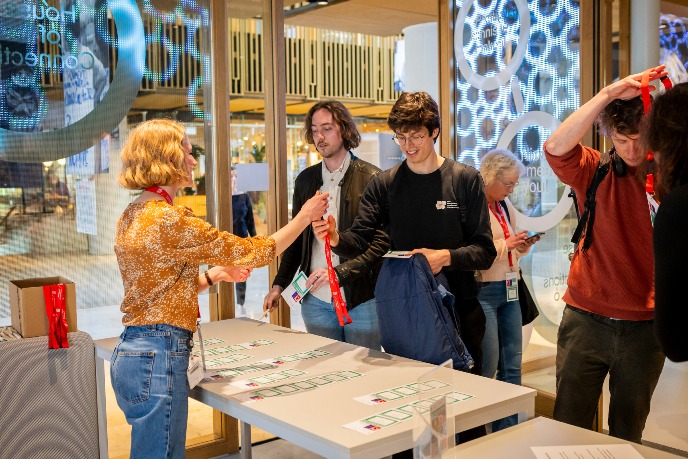
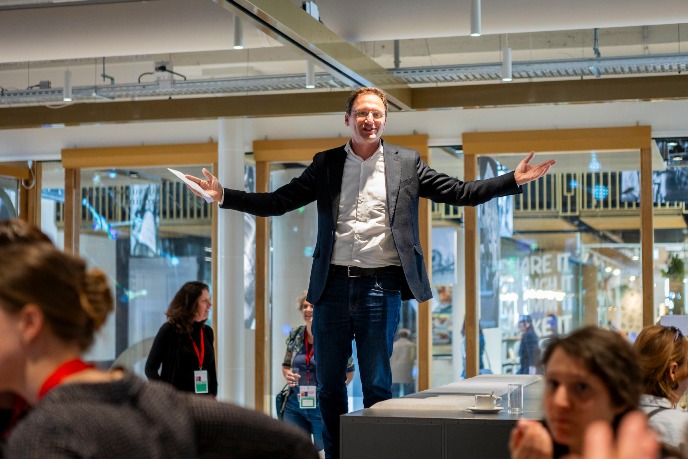
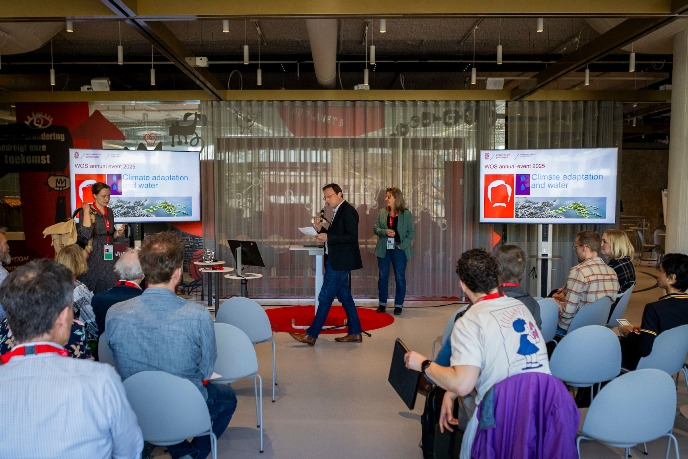
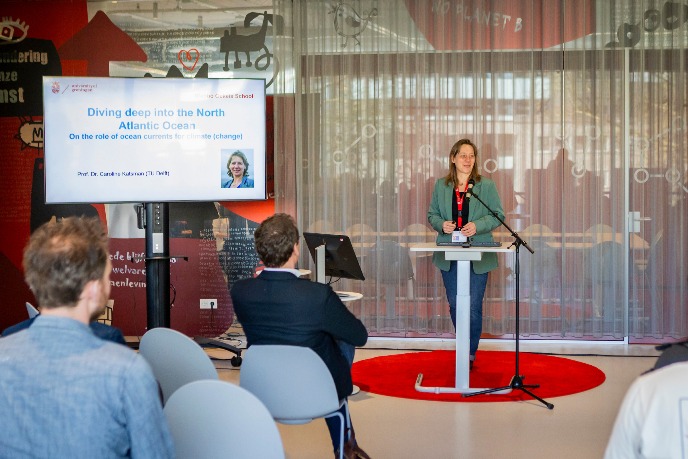
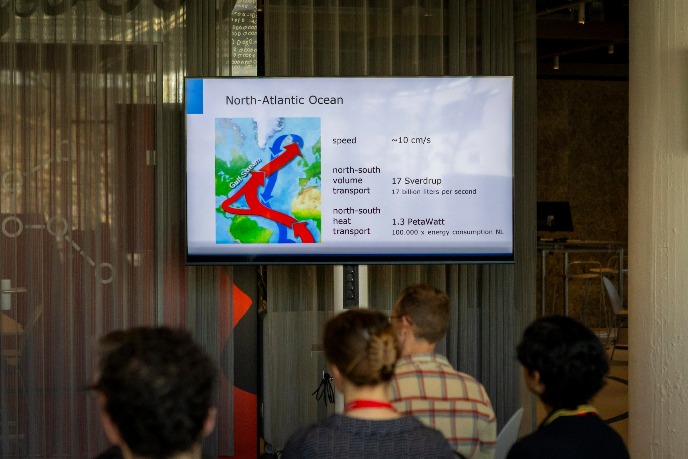
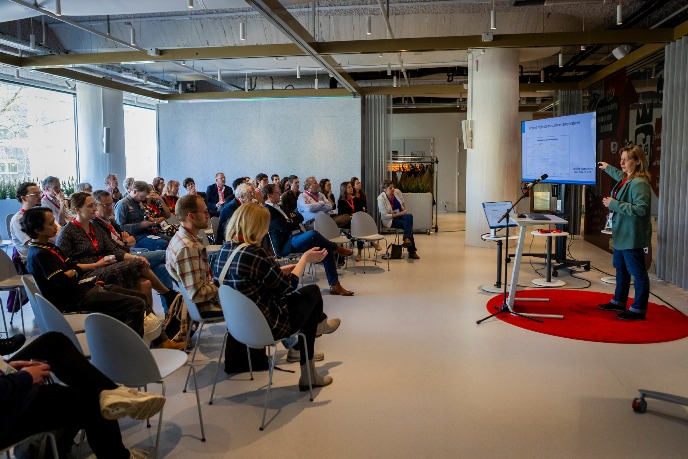
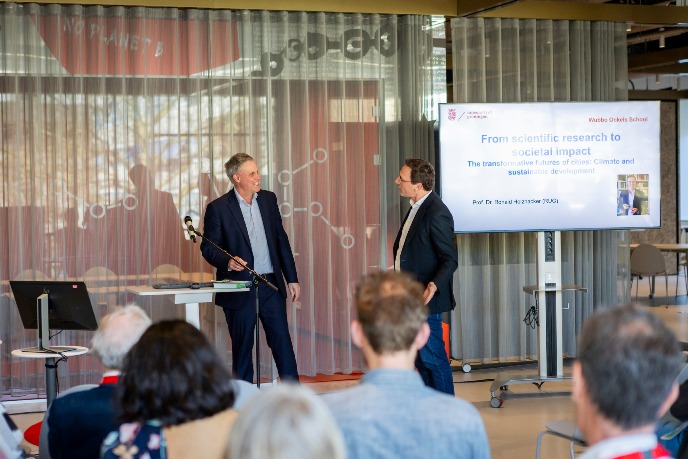
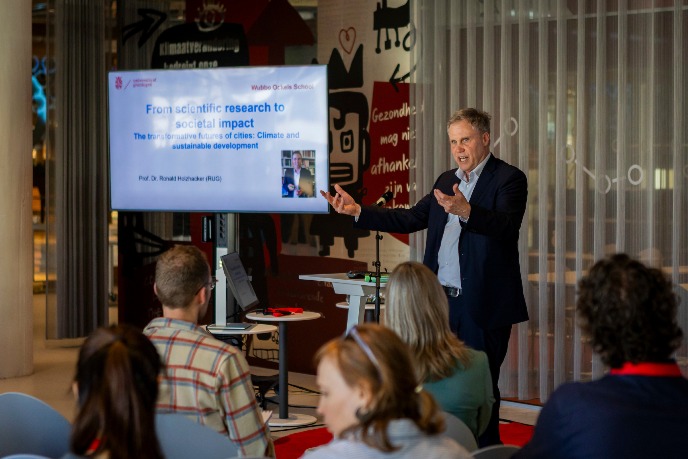
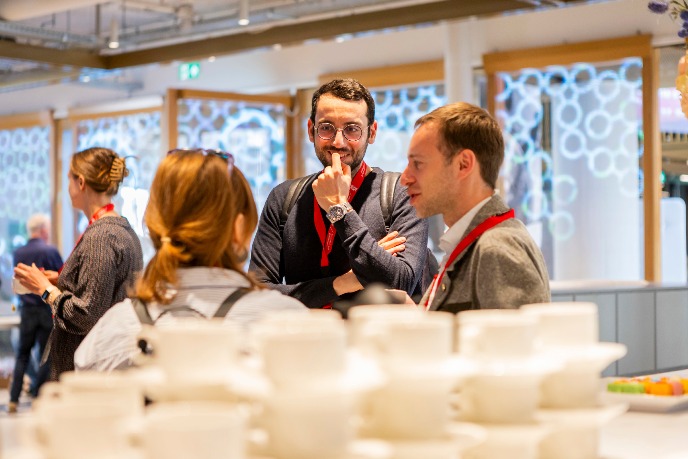
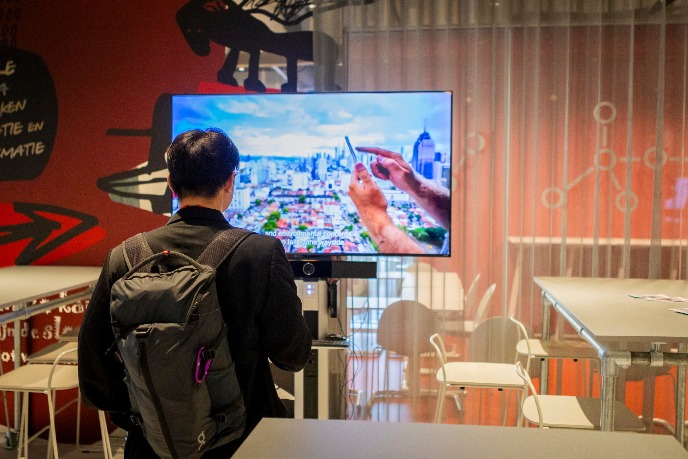
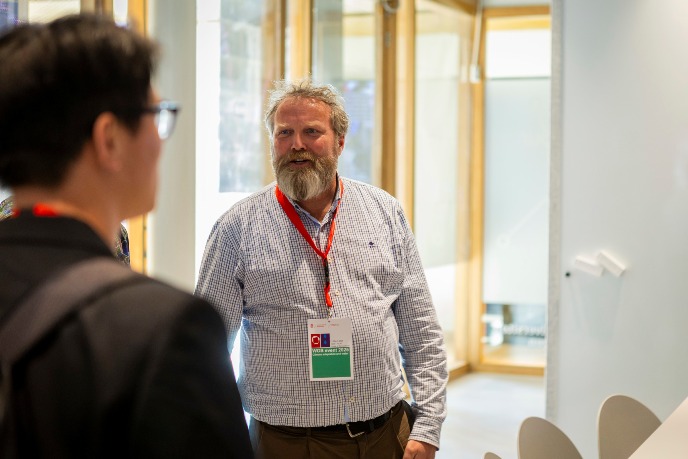
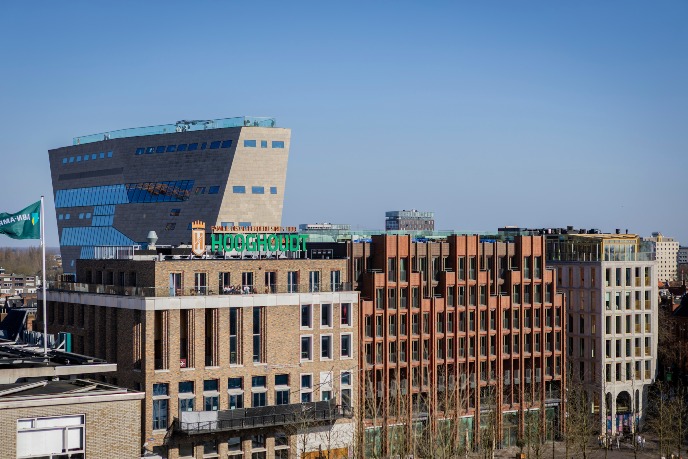
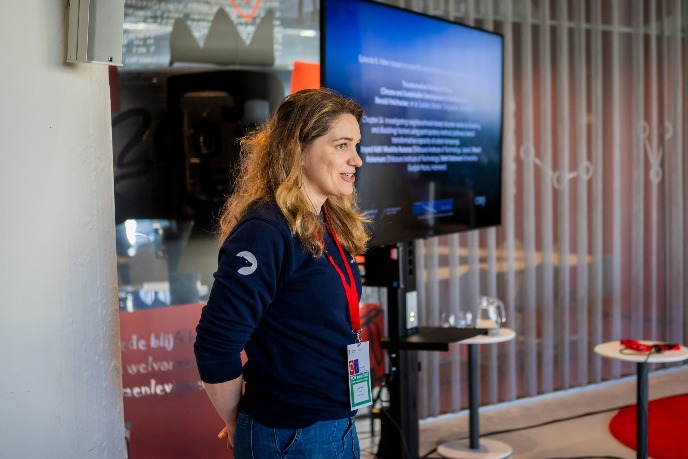
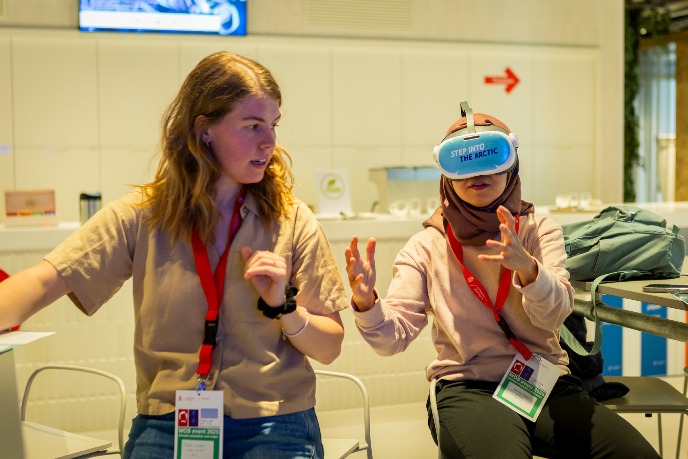
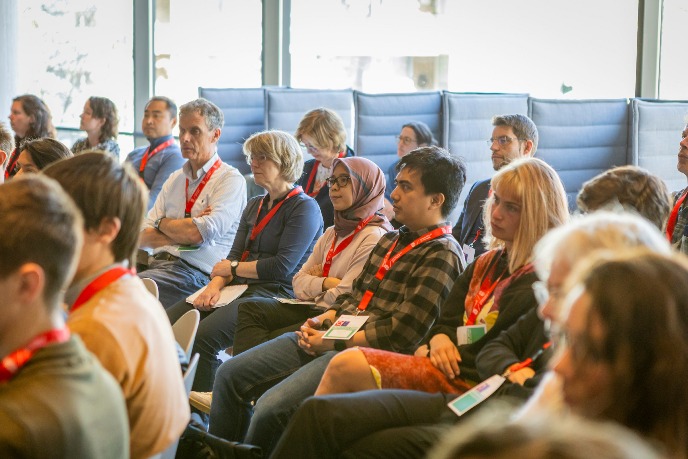
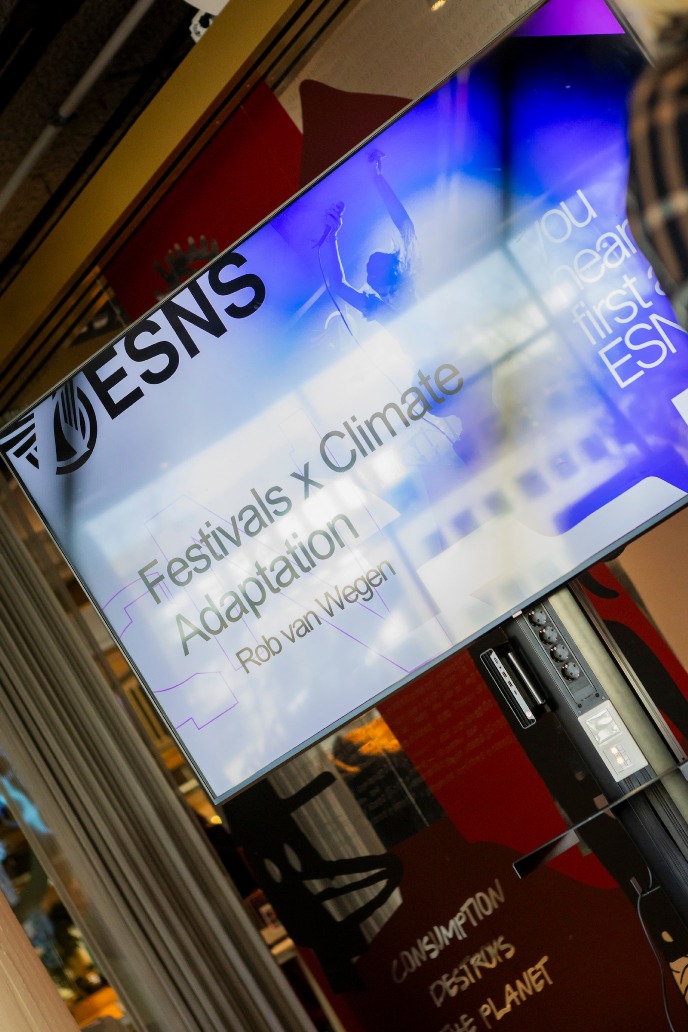
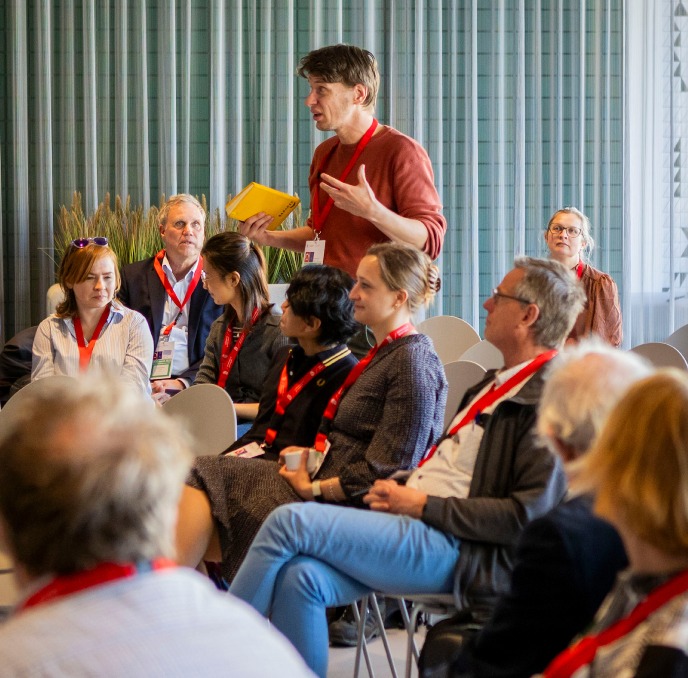
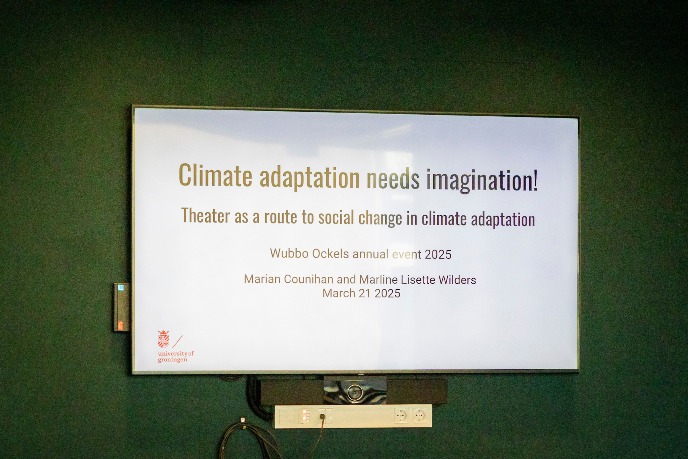
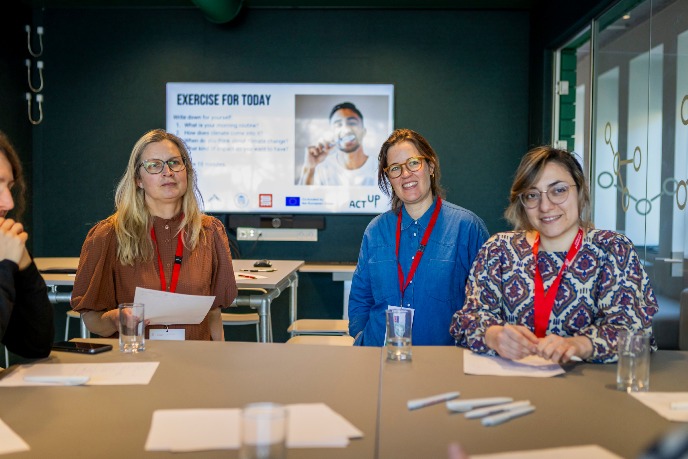
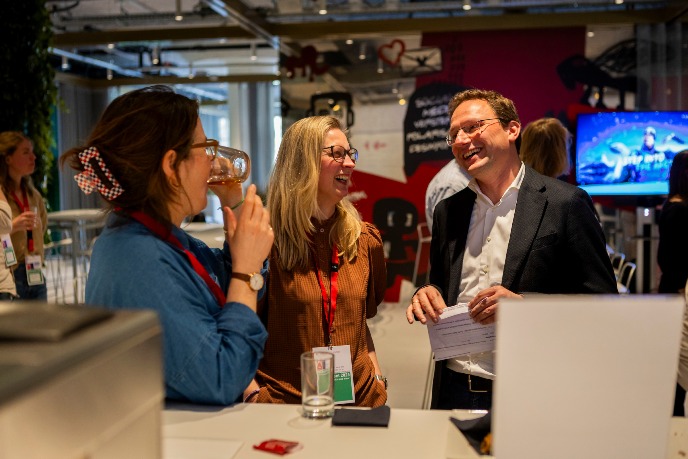
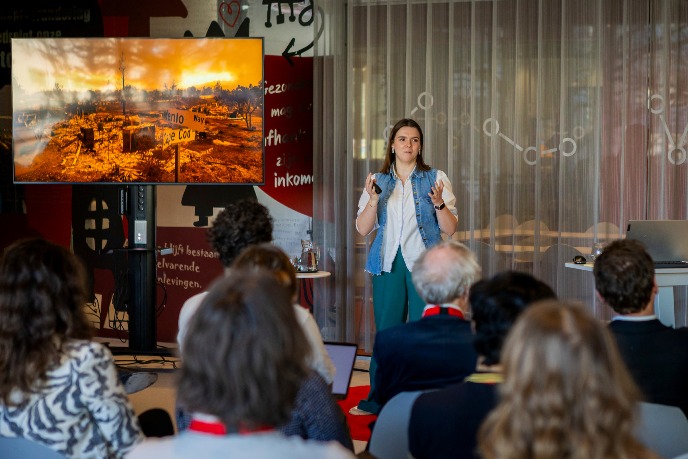
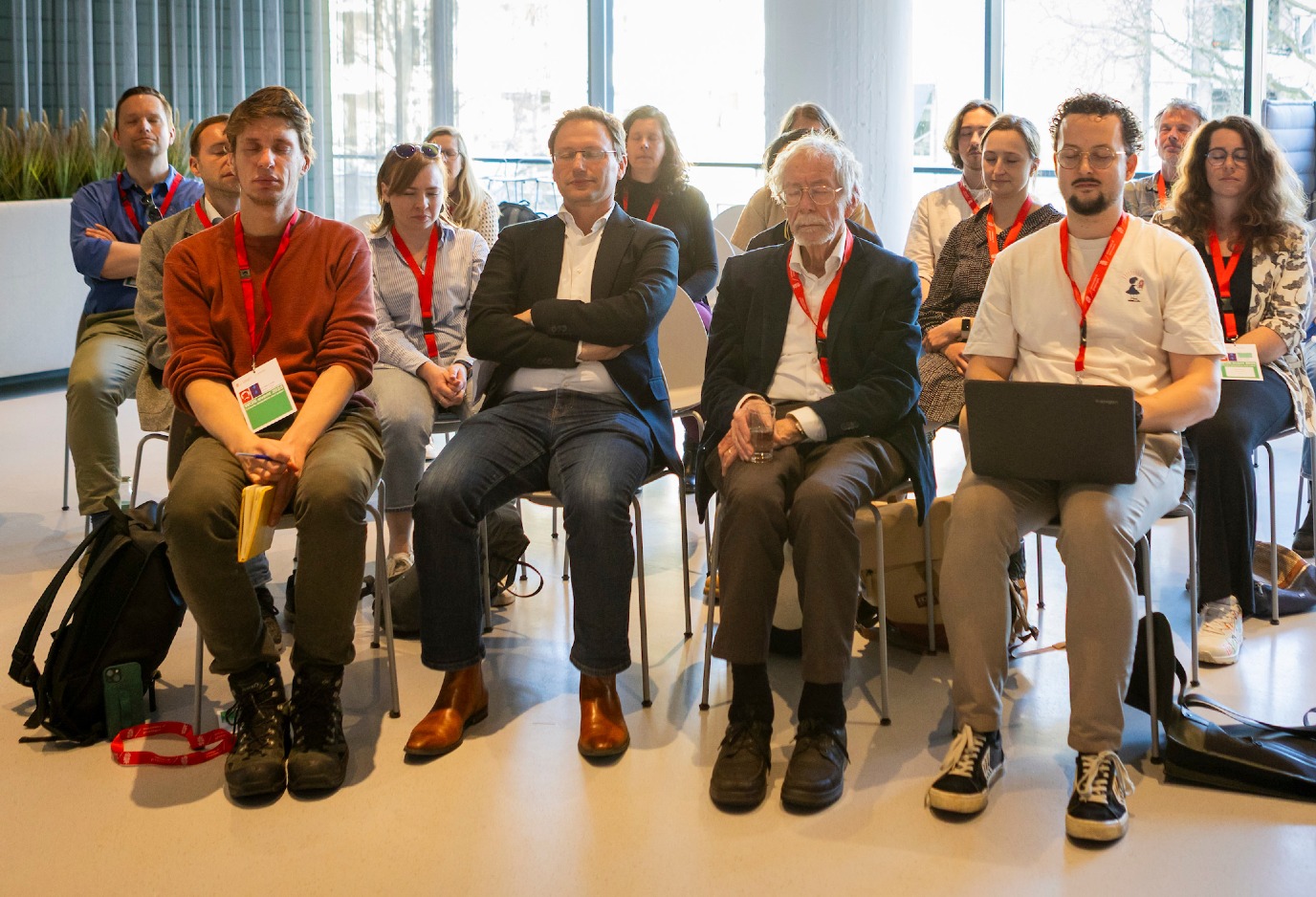
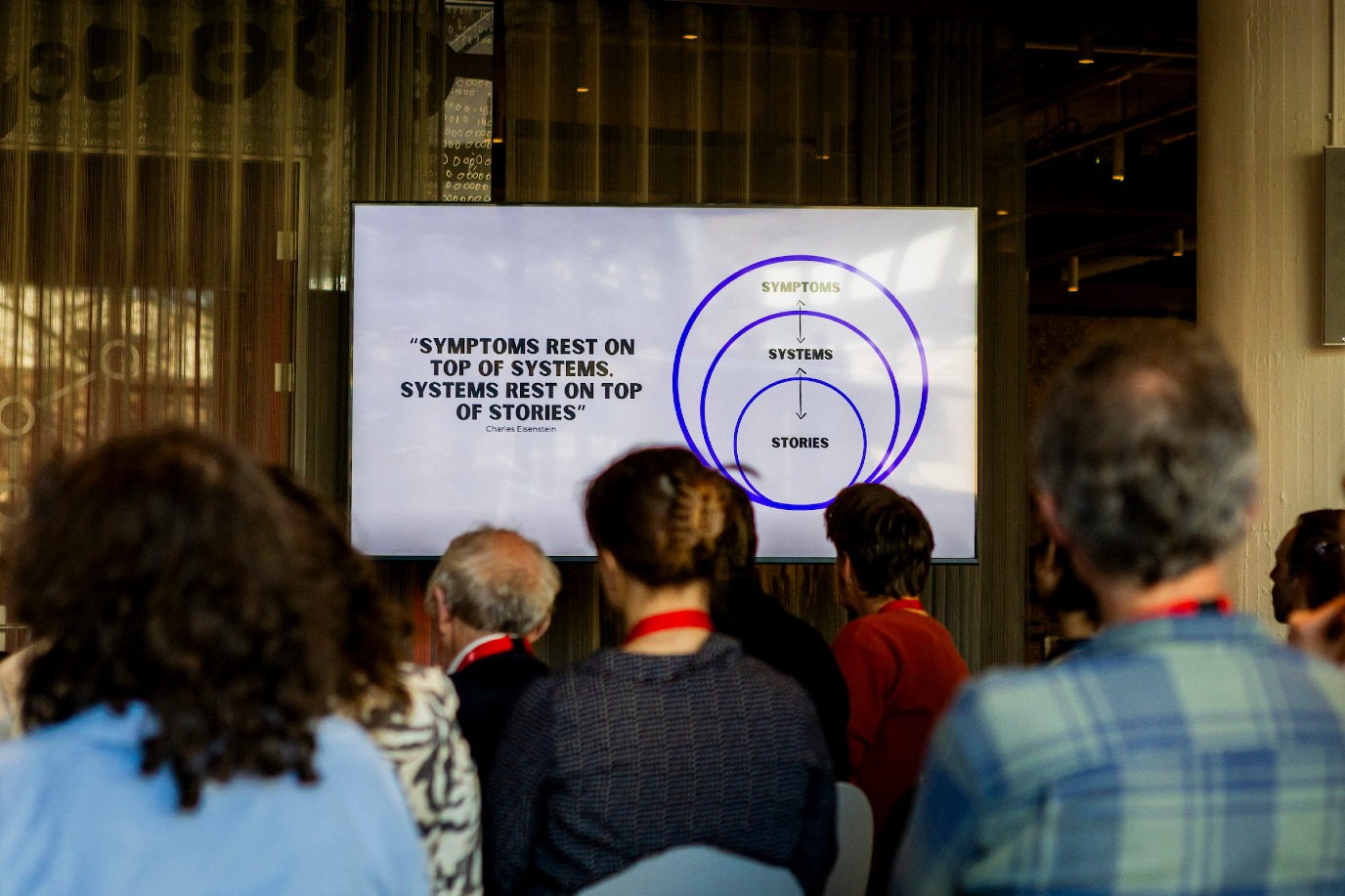
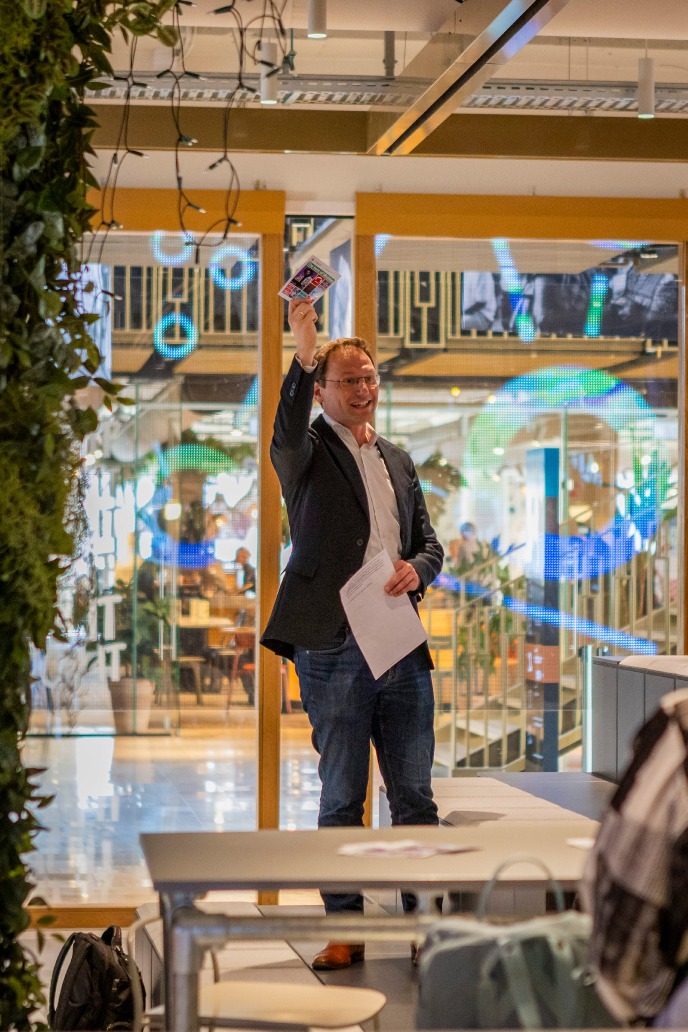
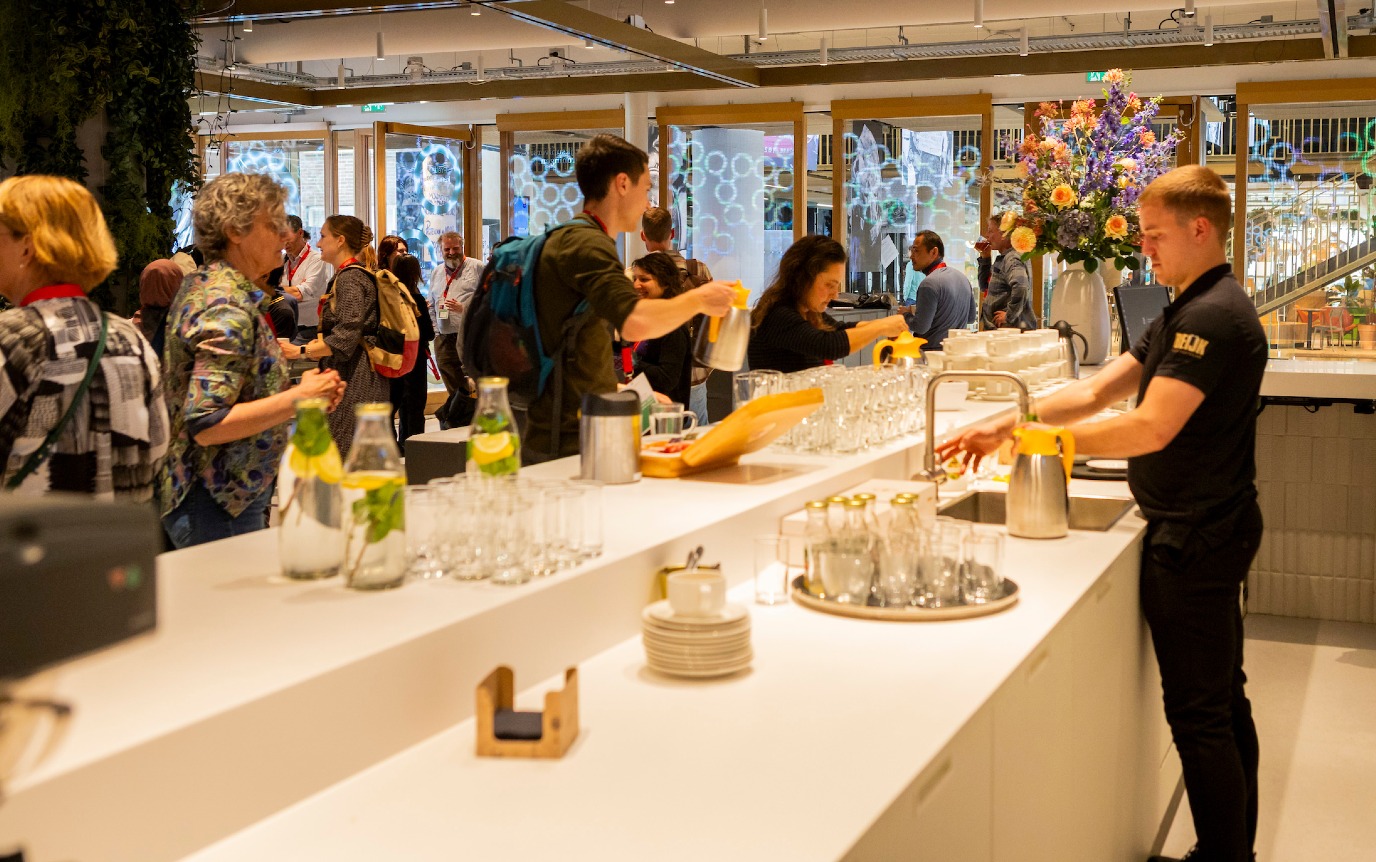
| Last modified: | 28 March 2025 5.38 p.m. |
More news
-
24 March 2025
UG 28th in World's Most International Universities 2025 rankings
The University of Groningen has been ranked 28th in the World's Most International Universities 2025 by Times Higher Education. With this, the UG leaves behind institutions such as MIT and Harvard. The 28th place marks an increase of five places: in...
-
05 March 2025
Women in Science
The UG celebrates International Women’s Day with a special photo series: Women in Science.
-
16 December 2024
Jouke de Vries: ‘The University will have to be flexible’
2024 was a festive year for the University of Groningen. In this podcast, Jouke de Vries, the chair of the Executive Board, looks back.

